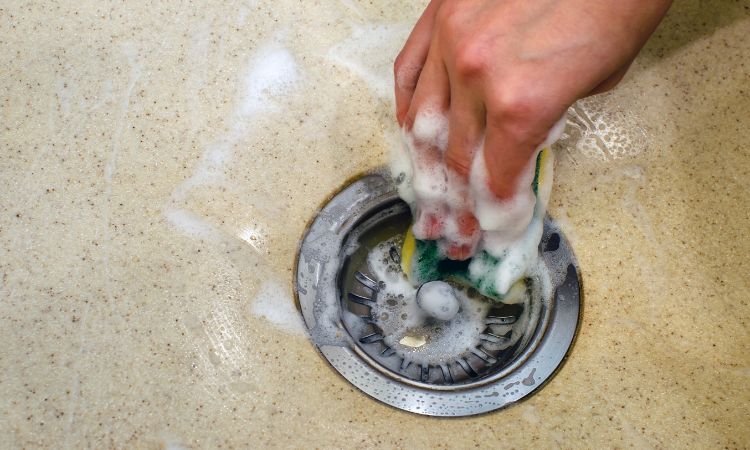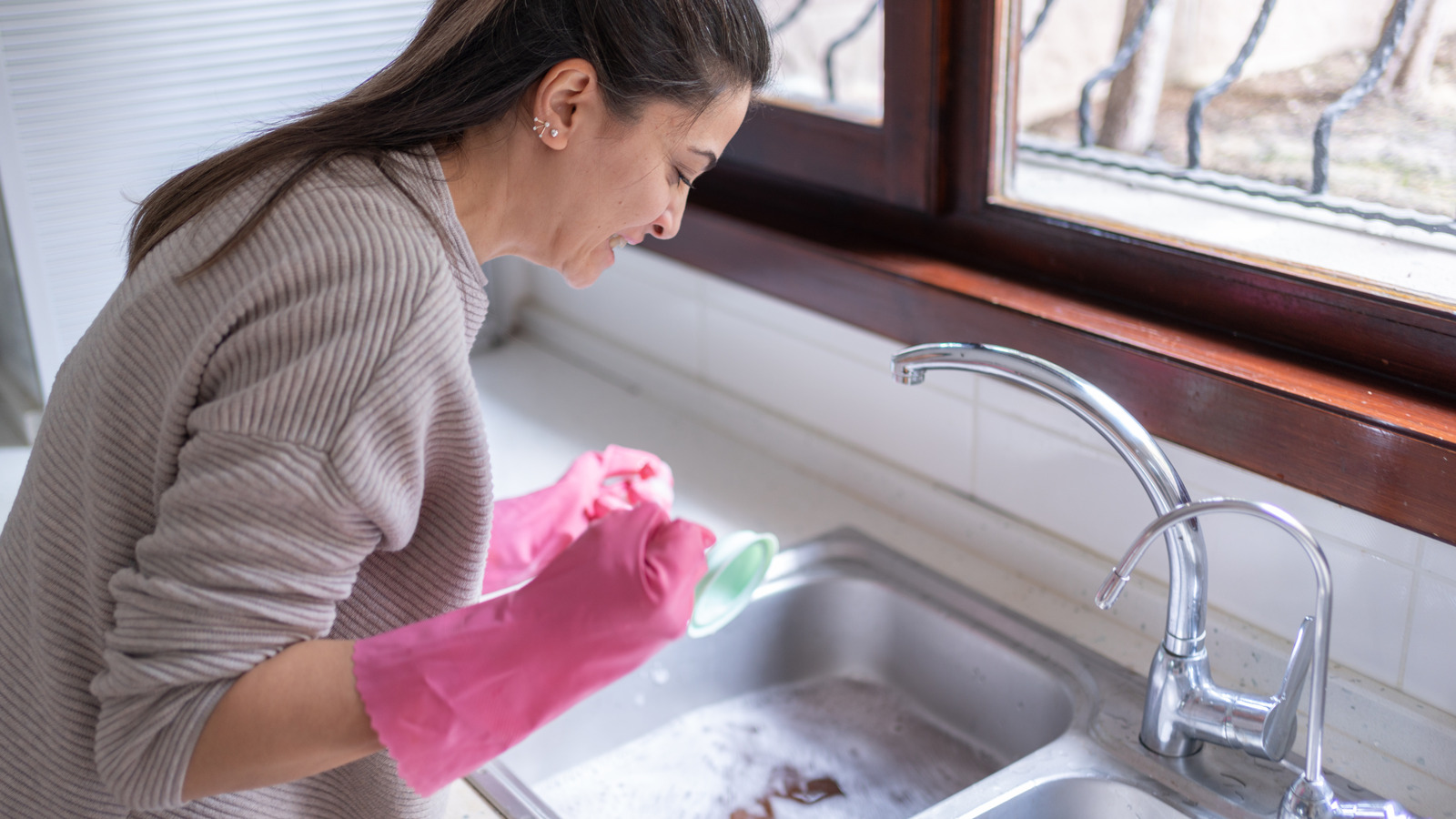Basic Fixes For A Slow-Draining Sink
Basic Fixes For A Slow-Draining Sink
Blog Article
Just how do you feel about 4 Tips to Fix a Slow Draining Sink?

Introduction
We have actually all existed: You're cleaning your teeth or washing your hands, and you notice the water merging in the sink. As opposed to quickly swirling away, it remains, transforming your once-refreshing early morning regimen into a miniature swamp scene. A slow-draining sink isn't simply bothersome; it's often an indication of larger pipes concerns lurking below the surface. The bright side is that the majority of slow-draining sinks can be fixed with a little know-how, a few standard devices, and some perseverance. All set to tackle this project head-on? Allow's roll up our sleeves and dive right in.
Understanding the Causes of a Slow-Draining Sink
Prior to you begin poking around in your pipes, it assists to recognize what might be triggering the slowdown. Comprehending the origin makes it easier to select the appropriate repair.
Devices and Materials You'll Need
The right tools make all the difference. Fortunately, you will not need a totally equipped plumbing technician's van to do the job.
Step-by-Step Overview to Repairing a Slow-Draining Sink
Now, allow's get into the nitty-gritty. This detailed process will certainly guide you with simple methods to recover your sink's drainage.
Step 1: Get Rid Of and Tidy the Stopper
Frequently, the stopper (that little plug you lower to obstruct water) is the first offender. Remove it very carefully and clean off any hair or substance caught around its base. Wash it extensively before putting it back in position.
Step 2: Make Use Of a Plunger to Displace Debris
Got that bettor prepared? Position it over the drainpipe and give it a few firm pumps. The concept is to produce suction that can loosen any type of clog. If you see little bits of debris floating up, you're on the appropriate track.
Action 3: Attempt a Drain Serpent or Cord Hanger
If the plunger doesn't work, it's time to bring out the drainpipe snake. Delicately feed it into the drain and twist as you go. You could feel some resistance-- that's likely the clog. Maintain twisting and drawing until you eliminate the blockage. If you don't have a drainpipe snake, a corrected the alignment of wire hanger can operate in a pinch.
Step 4: Apply a DIY Drainpipe Cleaner
A natural cleaner made from cooking soda and vinegar can break down residual gunk. Put half a cup of baking soft drink right into the drainpipe, followed by half a cup of vinegar. Allow it fizz for about 15 mins, after that flush with warm water. This chain reaction typically does marvels for minor blockages.
Tip 5: Reconstruct and Examine the Sink
Placed everything back together and run the faucet. Does the water now swirl down the tubes at a commendable rate? If yes, offer on your own a pat on the back. Otherwise, do not misery-- there are still a couple of even more tricks up your sleeve.
Important Tools for DIY Services
A plunger is your go-to beginning factor. A small, sink-sized plunger produces suction that can dislodge small clogs. For even more consistent clogs, a drain snake (sometimes called a plumbing's auger) works wonders. A pair of handwear covers, a flashlight, and maybe a set of protective safety glasses are also convenient.
Suggested Cleansing Solutions
Mild meal soap and hot water can assist break down greasy build-up. A combination of baking soft drink and vinegar is a tried and true home remedy, and chemical cleansers supply a more environment-friendly approach. Maintain chemical drainpipe cleaners as a last resort, as they can be extreme on your pipelines.
Common Culprits Behind Slow Water Drainage
So, what's blocking things up? Commonly, it's a mixture of daily particles-- assume hair, soap scum, tooth paste deposit, and remaining food bits. Gradually, these tiny bits accumulate and hold on to the pipe wall surfaces, slowly tightening the passage and making it harder for water to pass through. In some cases, mineral deposits from hard water can also include in the crud, developing the ideal tornado for stubborn obstructions.
When is it Time to Act?
If you notice the water draining pipes slower than normal, it's a good concept to step in earlier instead of later on. Waiting also long might result in complete clogs, undesirable smells, and even pipe damages. If the water takes greater than a couple of seconds to remove after turning off the faucet, consider it a red flag and prepare yourself to put on your DIY hat.
Safety And Security First: Safety Measures and Preparations
Prior to you launch into unclogging setting, think of safety and security. You're managing possibly filthy water and debris, so slip on a set of gloves. If you're using chemical cleaners, ensure the area is well-ventilated and adhere to the directions on the label.
Protective Equipment and Office Configuration
Put down some old towels or dustcloths around the sink location to capture dashes. Eliminate any items that might get in your method, like soap dispensers or toothbrush owners. Make sure you have excellent lights-- get hold of a flashlight if needed.
Alternative Approaches for Stubborn Clogs
Not all blockages are created equal. If your sink still refuses to work together, take into consideration these alternative solutions.
Sodium Bicarbonate and Vinegar Technique
We currently discussed this, yet it deserves keeping in mind once more. This gentle, environment-friendly method is much safer than chemical cleansers and usually fairly effective.
Enzymatic Drainpipe Cleaners
Enzyme-based cleansers make use of all-natural bacteria to digest raw material. They're an excellent option if you're wanting to prevent rough chemicals. Simply bear in mind, they might take a bit longer to function their magic.
Chemical Drainpipe Cleaning Company: Advantages And Disadvantages
Chemical cleansers can blow up with tough blockages quick, yet they're not without drawbacks. They can create warm and fumes, damage pipes if made use of excessively, and pose ecological risks. Utilize them moderately, and always comply with the instructions meticulously.
Safety Nets to Maintain Your Sink Flowing
Prevention is the most effective treatment. By embracing a few straightforward practices, you can maintain your sink from slowing down in the first place.
Routine Cleaning Up Routines
Clean down the sink basin and component location consistently. Eliminate hair or food bits prior to they have an opportunity to wash down the drainpipe.
Avoiding Dangerous Substances Down the Drain
Reconsider prior to discarding coffee premises, oil, or coarse vegetable scraps down the sink. These culprits hold on to pipe wall surfaces, creating clogs gradually.
Regular Maintenance Checks
Set up a quick month-to-month evaluation. Run warm water via the sink for a couple of mins, paying attention to the circulation. If it seems slow, act quick before it ends up being a full-blown obstruction.
When to Call a Professional Plumbing Professional
Sometimes, despite exactly how tough you attempt, that block simply will not move. That's when it's time to generate the pros.
Indications That Suggest an Extra Major Concern
If your sink drains pipes slowly despite numerous attempts, or if you notice water backing up in other components (like your shower or commode), you may have a much more serious plumbing issue hiding much deeper in the system.
Stabilizing Do It Yourself Initiatives with Specialist Aid
While do it yourself can conserve you cash and supply a feeling of accomplishment, there's no shame in calling a professional. A specialist plumbing can examine your whole plumbing configuration, making sure there's no underlying damage or long-term issue that might cost you much more down the road.
Contrasting Expenses and Long-Term Solutions
Before choosing, consider the big picture. An economical, quick fix may fix the problem momentarily, yet buying a much more permanent solution can save you money and tension in the long run.
Weighing the Costs of Do It Yourself vs. Professional Repairs
Do it yourself fixes usually cost little more than the cost of a bettor or a container of cooking soft drink. Specialist solutions, on the other hand, featured a price tag but might prevent repetitive concerns and pricey fixings later on.
Buying High Quality Fixtures and Upgrades
If your sink's style contributes to constant obstructions, it may be worth upgrading to higher-quality components or modifying the plumbing design. Consider this an investment in your home's capability and comfort.
Verdict
A slow-draining sink can seem like a minor inflammation, but it's usually an indication that your pipes needs a little tender loving care. By comprehending the root causes, utilizing the right devices and strategies, and dedicating to basic preventive measures, you can keep your sink streaming easily. And when all else fails, never hesitate to call an expert-- your home's pipes deserves the investment in treatment and upkeep.
Three Common Ways to Fix a Slow Drain
Baking Soda Method
Boil a full pot of water. Measure out cup of baking soda and pour it down the drain. Then take cup of the magical cleansing substance known as white vinegar and drop that down there too. Allow the mixture to fizz in the drain for five minutes as the vinegar and baking soda combine. Now dump in that whole pot of boiling water. This combination of cleaning substances should clear out anything that is causing your sink to drain slowly. If it doesn t...
Zip-It
If the baking soda method doesn t clear out your drain, it may be because a significant amount of hair and/or other debris has collected there and you need to remove it. Purchase a Zip-It tool at any home improvement or hardware store and insert it into your drain. It will catch any collected hair or debris that s blocking the flow of water. Pull it out. If it s got a big clump of hair, etc. on the end, you ve probably got your culprit.
Drain Cleaner
If these methods don t work, there is the standard drain cleaner that you can also buy in a hardware store or even your local grocery store. It s better if you can use a household solution, but these drain cleaners often work in a pinch. They re very simple to use. You generally just dump them in your drain and wait. If even this method is not effective, it may be time to call the plumber.
https://www.mrrooter.com/oneida/about-us/blog/2017/july/three-common-ways-to-fix-a-slow-drain/

As an avid reader about 4 Tips to Fix a Slow Draining Sink, I think sharing that piece of content was worthwhile. Enjoyed our piece? Please quickly share it. Help somebody else find it. Thank you for being here. Revisit us soon.
Call Today Report this page